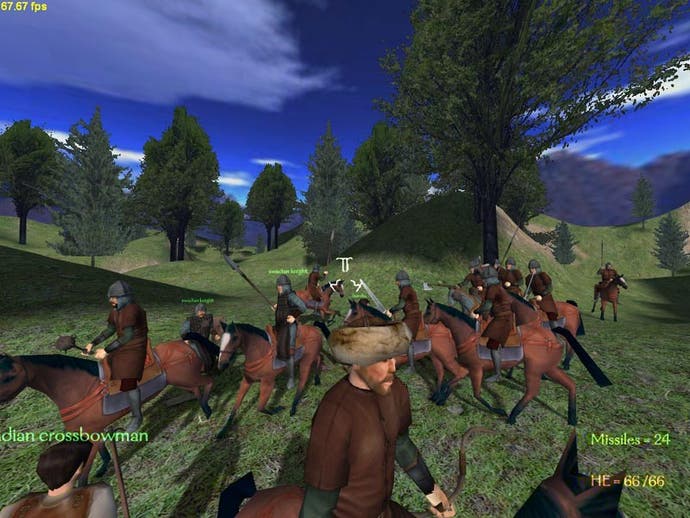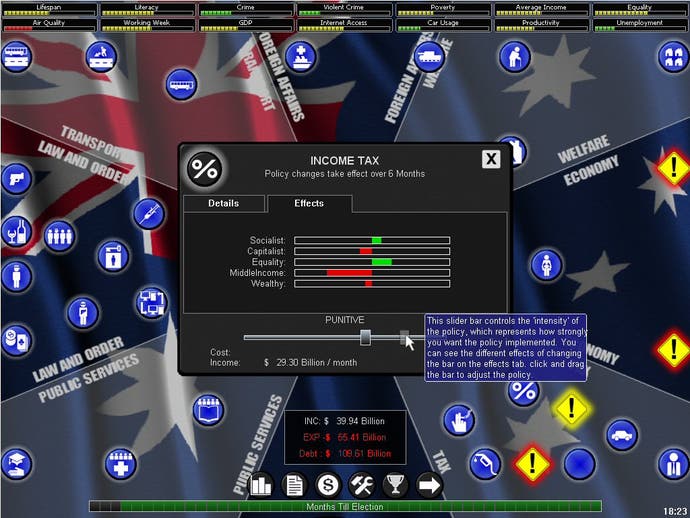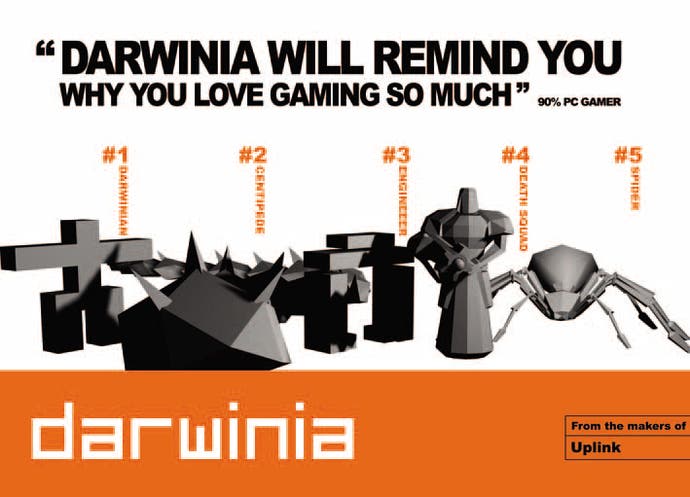The State of Independence #3
My Kingdom for a Horse - a controversial budget.
The previous two columns have primarily dealt with genres outside of the PC games mainstream. The first took on games that exist in the casual gamer world or art space. The second examined the Shmup [shoot-'em-up - Ed], a founding-stone of our gaming world now relegated to the touchlines. This time, we're looking at something that's a little more central to our thoughts of PC gaming: the strategy game. The twist being that both of today's examples show precisely how limited our conceptions of strategy games have become.
First up, Mount and Blade.
You play a freelance, in the original definition of the word. That is, a man with a lance who's free for hire. Well... at least he will be when you've scraped enough cash together for a horse and a glorified spear, anyway. The medieval world you inhabit is at war. It's up to you to have adventures.
It's one of those freeform games that gamers love but developers live in fear of actually constructing. Structurally, its most obvious peer is Sid Meier's recently re-made classic Pirates!. The map is covered in small towns, each of which has different resources and utilities. By traipsing between them, you can get involved in buy-high-sell-low-go-bankrupt style trading. However, there are also merchants travelling between each town, which are in turn preyed upon by bandits or military forces from the opposing side and... well, it's a living world, full of nuances. Most of the things you'd think a freelance mercenary can get up to, you can get up to. Join one of the two sides and claim a wage for the work. Meet up with caravans in the middle of nowhere and offer to escort them to their destinations in exchange for cash. And, in an updating of Elite's Narcotics Glad-to-be-bad ethos, subdue the opposition with non-fatal weapons and then sell them into slavery.

With somewhat rudimentary graphics and a lack of general polish - though there's a good reason for that, which I'll elaborate on later - it wouldn't be worthy of the hype its receiving if it wasn't for the second string to Mount and Blade's bow. That is, the mounts and the blades. The second a fight kicks off, you enter the combat game, which shows the majority of the developer's efforts. Its one of the best sword-based combat games yet seen, based around timed blocking and carefully placed attacks. It gets more impressive when you see the horse combat, with these beautiful steeds cantering around the edge of the battlefield, lining up and charging. And it gets more impressive when you realise that battles end up featuring dozens of people, all running around in a convincing melee. Imagine Dynasty Warriors fired through a far more realistic filter, and you've got the majority of its appeal.
It's a game that's also weighted more towards the traditional role-playing game than Pirates!, with more defined levels for your character, skill-points to spend and experience to gather. Equipment is particularly important; you collect loot from your defeated foes and then either keeping it for your own personal use or sell it for (er) more shiny, golden loot. Like most freeform games, it's big on loot. But aren't we all?
Husband-and-wife team, Taleworlds is also interested in loot. Luckily, they're being quite canny about it. While the game's not yet in its final Gold state, it's available to download and playable up to character level 6. Then you can pay a $12 fee to unlock the code to play in its current state. This actually acts halfway between an early-buyer incentive and patronage of the arts. The unlocking fee allows you to play all the later versions of the game, including the final one. If you wait until the game is finished, you'll pay the full $25 fee. So there's every incentive to get in early, especially when the game's non-linear structure and general stability mean that it's one of the more interesting games of the year already. You save cash and get to enjoy the glow of being an early adopter. They gain much needed supportive funding and a more committed community than most.
So, yes, clever. If you're the sort of gamer who feels as if they're being patronised by a developer holding their hand as they trudge down a pre-dug trench, Mount and Blade offers you the open steppes, a powerful horse of your very own and a horizon to chase. It's whatever you make of it.

Making things what you want is also the theme of Democracy, but on a far higher level. Made by long-time British indie Positech, it deals with the sordid business of keeping the hopeless proles fed with processed chicken fat - and supplied with sufficient distracting pop-culture memorabilia to make sure that they vote for you next time you're up against an almost indistinguishable corporate stooge.
Sorry. Just a little bit down about the fate of Western Consumer-Democracies. But that's the core reason why someone would be interested in Democracy. While American friends may sigh to me that one day they wish they could vote for a Presidential candidate they actually liked rather than one that's the marginally more bearable of two bad options, here's a chance to play out the radical candidate of their own fantasies.
There's been a history of political strategy games, both independent and in the mainstream. Some concentrate on world politics and the interaction and clashes between nations, like the classic Chris Crawford Balance Of Power and the amusingly-badly-modelled Superpower 2. Others, like the recent Political Machine, concentrated purely on the campaigning aspect as candidates fight it out to achieve office. There's more indirect takes too, like Floor 13 or the Yes, Prime Minister game from the eight-bit days, which used the bureaucracy of government as fuel for a black-ops conspiracy thriller or farcical comedy respectively.
Democracy is interested in the actual nature of government - as in passing laws, and trying to stay in the political hot seat once you're there. Depending on which country you play, you have different problems to deal with and demographics to seduce or alienate. For example, when I played, to increase my cashflow I decided to legalise pretty much any drug which you could choose to insert into your body. And while I got a towering pile of cash which I proceeded to lavish on public services, my support dropped like a stone with more moralistic lobby groups. While I eventually ended up being voted out of office, I leave the country in a better state than when I arrived and so gain the glow of a job well done.
My friend goes even further with a radical anarcho-syndicalist agenda which Krotopkin would have dismissed as a bit on the extreme side, and ends up suffering a coup from reactionary elements among the military and business world. But he had fun doing it, which is really the point.

Most games are power fantasies. Democracy is exactly the same. As a game, it works best when the gamer actually cares about such trifling, old-fashioned things as Democracy and politics. If you're not interested at all in politics, it's about as much fun as Championship Manager is to someone who doesn't care that Gross-step Fulham have signed Arnold Kicker for twenty-seven million pounds. If you're interested in politics, but only in terms of the actual gaming of it and machinations, you'll find Democracy of interest, but only in passing. Play smartly, and success will be easily mastered. However, if you actually are a bit barmy and willing to approach it as a sandbox to see what you can get away with... well, you'll be laughing until someone declares you a member of the Axis of Evil for privatising McDonald's or something.
And while we're on a strategy tip, there's time for a quick mention of Introversion's continuing attempts to make the general populace buy one of the best games of the year. God damn their arrogance. As well as receiving Edinburgh Interactive Entertainment Festival's People's Choice award for 2005, they're busily working on a patch to allow a more traditional icon-based play mode for the game and selling some lovely posters from their new online shop. You can buy Darwinia from there too. But, of course, you've already all bought it, so there's no need to know that.
You have bought it, haven't you? You are aware that there's a purge planned for December where all the Eurogamer staff are going to climb into specially-constructed death machines and stomp across the country, releasing hordes of spike-covered nano-bots to reduce anyone whose body doesn't include the Darwinia-owning antigen into microscopic mulch? You did know that?
Phew.








